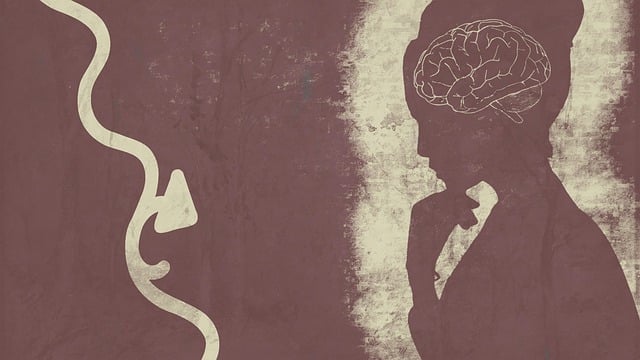Boulder Chronic Pain Therapy utilizes a multi-faceted approach, combining Emotion Regulation Techniques (ERT), Cognitive Behavioral Therapy (CBT), and mindfulness practices to address the mind-body connection. ERT teaches patients to manage stress and regulate moods through techniques like mindfulness meditation, cognitive reframing, and breathing exercises, enhancing emotional resilience. CBT challenges negative thought patterns, improves self-esteem, and integrates compassion cultivation for effective emotion management. Mindfulness and grounding techniques interrupt automatic pain responses, promoting overall well-being. A structured, goal-oriented approach with regular feedback sessions ensures long-term success in managing chronic pain, empowering patients to lead fulfilling lives despite their condition.
Emotion regulation techniques play a pivotal role in managing chronic pain, offering individuals in Boulder chronic pain therapy a powerful tool for enhancing their overall well-being. This article delves into the science behind emotion regulation and its profound impact on chronic pain conditions. We explore evidence-based approaches, notably Cognitive Behavioral Therapy (CBT), to teach practical skills. From mindfulness exercises to grounding techniques, discover everyday strategies that foster resilience and reduce pain. Additionally, learn effective implementation and tracking methods for long-term success in mastering these transformative tools.
- Understanding Emotion Regulation and Its Impact on Chronic Pain
- The Role of Cognitive Behavioral Therapy (CBT) in Teaching Emotion Regulation Techniques
- Practical Tools for Daily Life: Mindfulness, Grounding Techniques, and More
- Implementing and Tracking Progress: Strategies for Effective Learning and Long-Term Success
Understanding Emotion Regulation and Its Impact on Chronic Pain

Emotion regulation techniques play a pivotal role in managing chronic pain in Boulder Chronic Pain Therapy. Pain isn’t just physical; it’s deeply intertwined with our emotional state. When we struggle to manage our emotions, pain can feel intenser and more persistent. Techniques like mindfulness meditation, cognitive reframing, and breathing exercises help individuals develop resilience against pain by fostering mental wellness coaching programs development. By learning conflict resolution techniques and building resilience, individuals can better navigate the challenges that come with chronic pain, significantly improving their overall quality of life.
Understanding how to regulate emotions is a game-changer in pain therapy. It goes beyond merely treating symptoms; it focuses on empowering individuals to take control of their emotional responses. This proactive approach not only eases physical discomfort but also fosters a sense of empowerment and self-efficacy, which are crucial for managing chronic pain conditions. Through effective emotion regulation strategies, individuals can transform their relationship with pain, finding new ways to cope and thrive despite its presence.
The Role of Cognitive Behavioral Therapy (CBT) in Teaching Emotion Regulation Techniques

Cognitive Behavioral Therapy (CBT) plays a pivotal role in teaching emotion regulation techniques, offering a structured and effective approach to managing emotions, especially for individuals dealing with chronic pain in Boulder. CBT focuses on identifying and challenging negative thought patterns that can lead to intense emotional responses. By helping patients understand the connection between thoughts, feelings, and behaviors, CBT empowers them to modify their thinking and subsequently influence their emotional states. This therapeutic method is particularly beneficial for those experiencing chronic pain, as it provides tools to navigate and cope with the often-complex emotions associated with long-term discomfort.
Through various techniques, CBT encourages self-esteem improvement by fostering a more realistic and positive self-perception. Compassion cultivation practices are also integrated, teaching individuals to approach themselves and others with kindness and understanding, which can be transformative in managing difficult emotions. Public awareness campaigns development, centered around emotional health, further complements CBT by promoting a broader understanding and acceptance of the impact of chronic pain on mental well-being.
Practical Tools for Daily Life: Mindfulness, Grounding Techniques, and More

In the context of Boulder Chronic Pain Therapy, teaching effective emotion regulation techniques empowers individuals to manage their mood and alleviate pain symptoms. Mindfulness, a cornerstone of many therapy programs, is a practical tool that helps people stay present and reduce emotional reactivity. By focusing on the breath or engaging in mindful observation, individuals can interrupt automatic responses to stress and pain.
Complementing mindfulness, grounding techniques offer immediate relief during moments of intense emotion. These simple practices involve engaging five senses—touch, smell, sight, sound, and taste—to anchor oneself in the present. For instance, noticing the sensation of one’s feet on the ground or identifying nearby objects of different textures can help regulate emotions and foster a sense of calm. Incorporating these techniques into daily routines supports self-care practices and enhances overall well-being, particularly for those navigating chronic pain through Boulder Chronic Pain Therapy.
Implementing and Tracking Progress: Strategies for Effective Learning and Long-Term Success

Implementing emotion regulation techniques requires a structured approach for optimal learning and long-term success, especially in managing chronic pain. At our Boulder Chronic Pain Therapy center, we emphasize tracking progress as a key component of effective treatment. This involves setting specific goals related to emotional regulation and measuring improvements over time using various assessment tools. Regular feedback sessions with therapists help individuals adjust their practices and strategies based on their unique needs and challenges. By fostering a culture of self-awareness and reflection, patients can develop enhanced resilience and better cope with pain episodes.
Additionally, incorporating compassion cultivation practices and building emotional resilience are integral parts of our holistic approach. These techniques empower individuals to respond to stress and adversity more adaptively, further strengthening their emotional regulation capabilities. Through consistent practice and mindful tracking of progress, individuals equipped with these skills can lead more fulfilling lives, even in the face of chronic pain.
Emotion regulation techniques, as taught through Cognitive Behavioral Therapy (CBT) and practical tools like mindfulness and grounding exercises, offer a promising path for managing chronic pain in Boulder. By understanding the impact of emotions on physical well-being and implementing effective strategies, individuals can take control of their pain and improve overall quality of life. With dedicated practice and tracking of progress, these techniques empower people to navigate their emotional landscape, fostering resilience and enhancing their journey towards relief and recovery.











